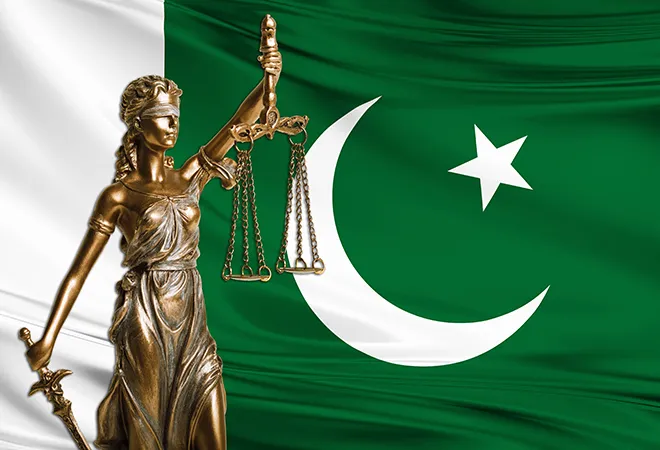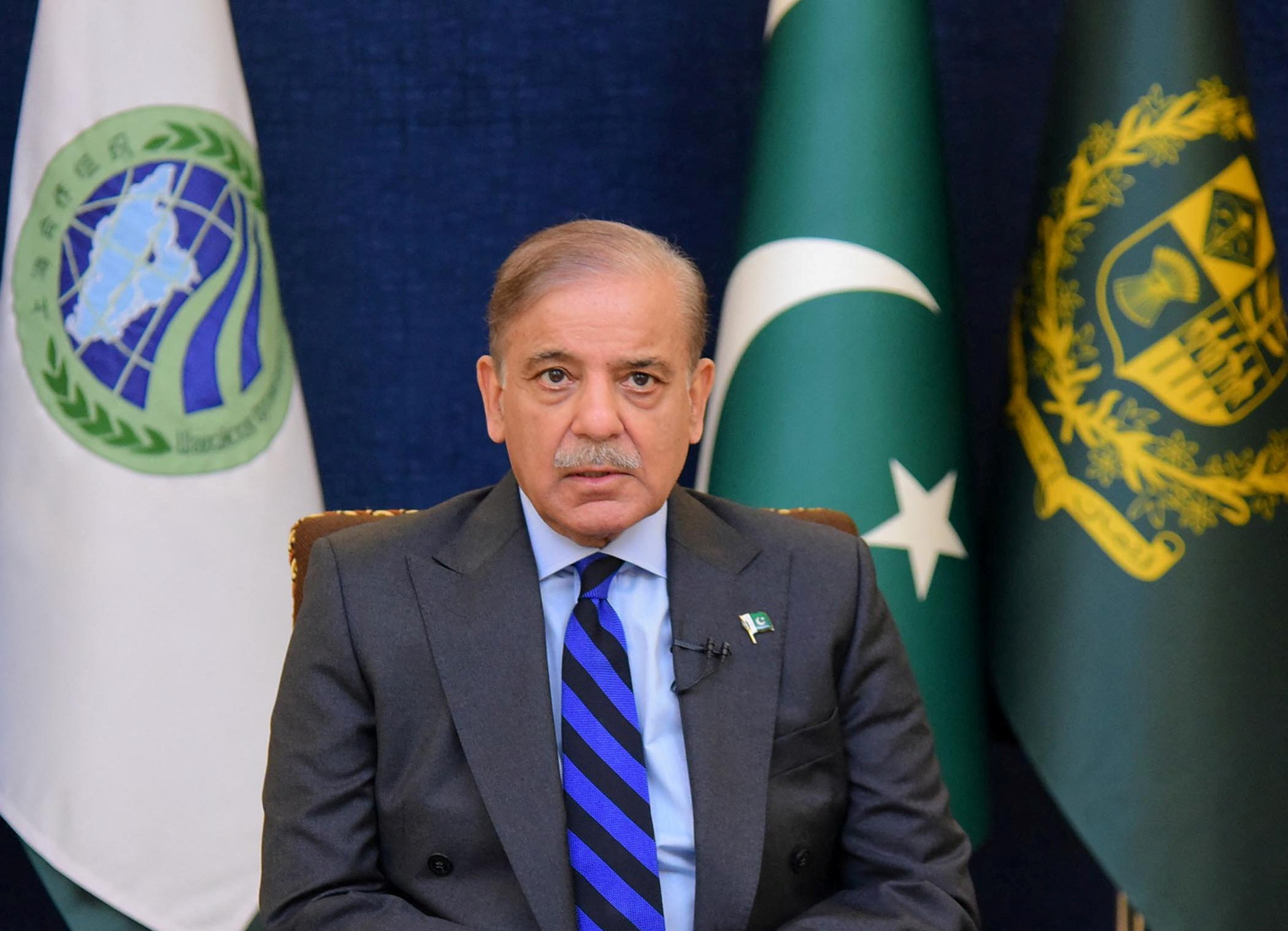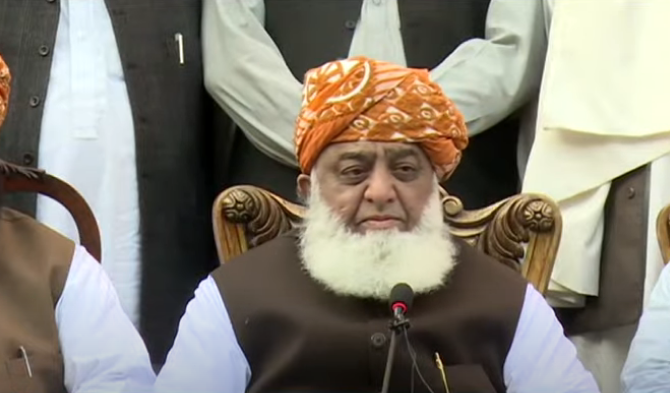In Pakistan’s ever-turbulent political landscape, the government’s pursuit of constitutional amendments has hit a snag, with Maulana Fazlur Rehman playing a pivotal role. Maulana, known for his political acumen, has neither committed to supporting the government nor opposed it, leaving critical decisions in limbo. This indecisiveness has led to a temporary delay in what could be a significant shift in the country’s legal and political framework. Imran Khan, now jailed, reacted with surprising optimism, praising Maulana as a masterful politician who adheres to his conscience.

The government’s challenge is clear: it needs 10 more votes in the Senate and 12 in the National Assembly to achieve the two-thirds majority required to pass these amendments. While Maulana’s faction controls 5 seats in the Senate and 8 in the National Assembly, even with his backing, the numbers still fall short. With independent members rumored to have gone missing, some allegedly aligned with PTI, the situation remains tense. In the background of this political drama lies a brief but controversial ruling from the Supreme Court concerning the independent PTI members. Several judges, however, have deemed this ruling unconstitutional and impractical. The key points of contention include the fact that the original petitioner was the Sunni Ittehad Council, not PTI. Moreover, PTI did not participate in the recent elections and holds no current parliamentary presence. No independent member has filed affidavits in support of PTI, and the deadline for such submissions has already passed. Further complicating matters, the Supreme Court nullified PTI’s intra-party elections, leaving the party without a functional administrative structure.

The government’s stance is clear: the Supreme Court’s 8-judge ruling is unenforceable. Yet, PTI frames these proposed constitutional amendments as a deliberate move to keep Imran Khan behind bars and extend Justice Qazi Faez Isa’s tenure. Government supporters, on the other hand, claim that these amendments are designed to block Justices Mansoor Ali Shah and Munib Akhtar, both of whom have been critical of constitutional rigidity, advocating instead for decisions based on moral conscience.
The looming fear within government circles is that if these 8 Supreme Court justices continue to issue rulings based on personal discretion rather than the constitution, it could precipitate a form of “judicial martial law,” paralyzing the state apparatus. The judiciary itself is not without scrutiny. Critics argue that judges have formed a close-knit clique by appointing one another, creating a so-called “judicial gang.” An alarming example lies in the Islamabad High Court, where five judges come from the same law firm and often issue rulings based on preference rather than the law. This judicial insularity has fostered an environment where enemies of the state, terrorists, and corrupt individuals frequently find relief. Over 2,700 billion rupees, owed to the state, remain locked in judicial limbo, with Pakistan’s judiciary now ranked among the worst in the world.
Government’s Response?
In response, the government has proposed sweeping reforms. Among them is the creation of a separate court for constitutional matters, freeing the Supreme Court to address the more pressing needs of the public. Additionally, the government plans to propose five names for the position of Chief Justice to curb the influence of politically driven judges like Mansoor Ali Shah. They also seek a more active role in judicial appointments—a practice that, while controversial, is standard in many democracies around the world.

Other proposed reforms include setting deadlines for judicial decisions and implementing annual performance reviews to expedite court processes. High Court judges would be subject to transfers to prevent the formation of entrenched cliques like the one currently dominating the Islamabad High Court. Lastly, an increase in parliamentary seats for Balochistan is on the table. The stakes are high for PTI, which believes that the passage of these constitutional amendments would seal Imran Khan’s fate, leaving him to spend the remainder of his life in prison. This concern has only grown following reports of a foreign article on Donald Trump, circulating within PTI circles, where Trump expressed disinterest in Khan’s plight, dismissing it as Pakistan’s internal matter. With Trump out of the equation, PTI’s last hopes seem to rest on Justices Mansoor Ali Shah and Munib Akhtar.

Meanwhile, speculation surrounds Maulana Fazlur Rehman, with whispers of lucrative offers being made by both the government and PTI. The government is rumored to have dangled two federal ministries, control over the Balochistan government, and the Sindh governorship. Imran Khan, on the other hand, has reportedly offered 10 billion rupees in cash. As the political tug-of-war continues, the real question is whether these proposed amendments will lead to the much-needed reform of Pakistan’s judiciary, or if they will serve to deepen the country’s ongoing constitutional crisis. In either case, the fate of Pakistan’s democracy, and the future of its judiciary, hangs precariously in the balance.


